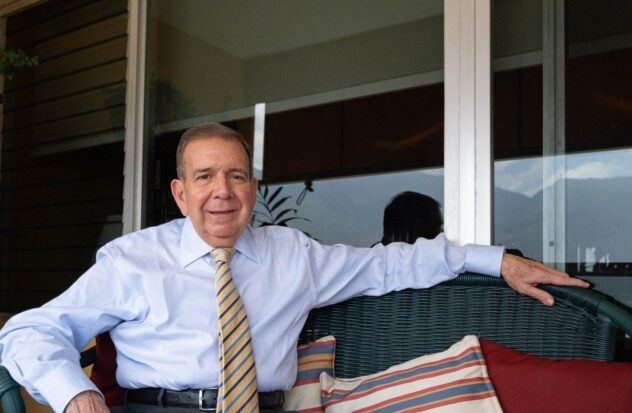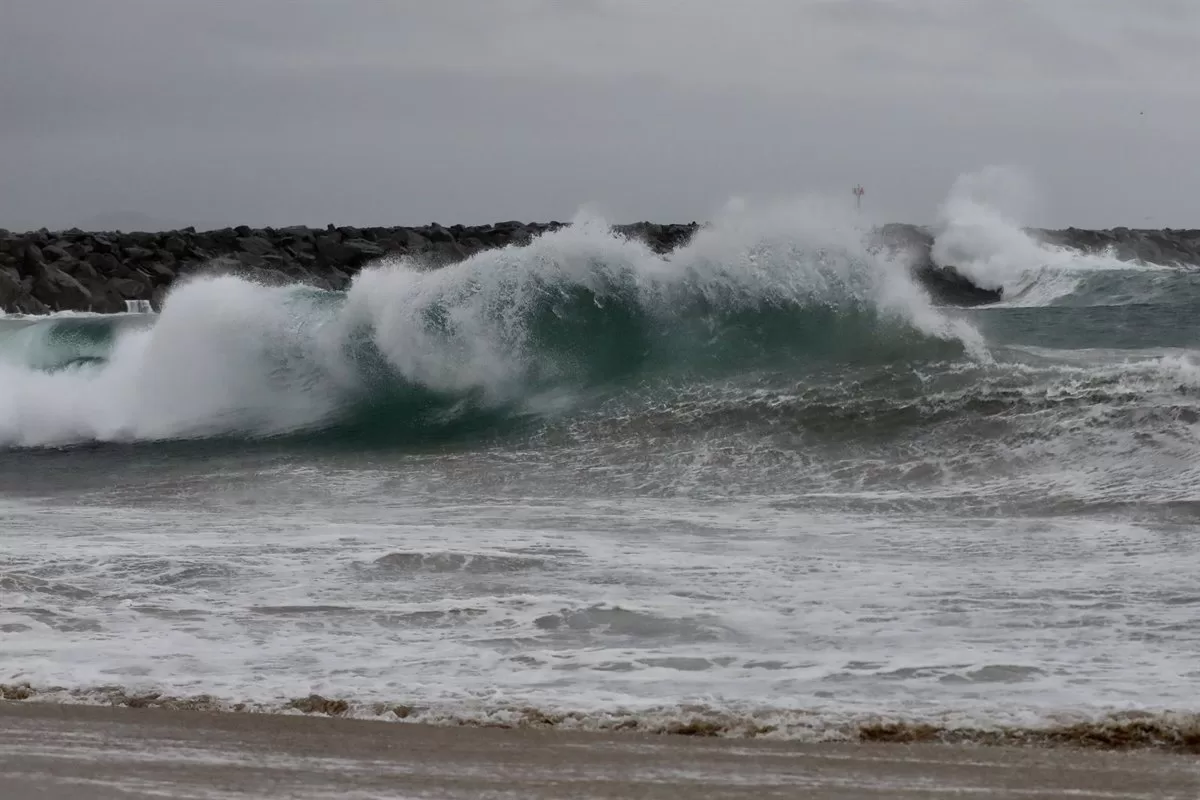Uncertainty about the opposition’s presidential candidacy can persist until election day itself.
Behind-the-scenes negotiations between the opposition and Nicolás Maduro’s regime managed to guarantee that the Venezuelan electoral authority admitted the candidacy of former ambassador Edmundo González. However, his permanence as an electoral option is not protected and depends on the fragile and incipient talks to try to agree on a framework of political, electoral and economic guarantees after the election scheduled for July 28.
Andrés Caleca, former president of the National Electoral Council (1998-2000) and former opposition presidential candidate in the primaries held in October 2023, maintain that the presidential election in July will be the “most disastrous” electoral process of the last century in Venezuela.
According to Caleca “the Venezuelan opposition has had no guarantees at any stage of the process, the National Electoral Council (CNE) has done whatever it wants with the candidates and parties. Look what they did on April 25, they not only took away the cards from the parties, but they invented games that same day. (…) Do not be surprised if this government does anything else, including suspending the elections. “Which would not mean a violation of the constitution, because they brought forward the elections.”
From his perspective, the Maduro regime “has lost its way and that makes them more dangerous than ever. “It should not be surprising that tomorrow the Supreme Court of Justice will outlaw the Democratic Unity Roundtable party or invent a disqualification against Edmundo González.”
Will Maduro admit defeat?
According to the situation analysis by the Eurasia firm, less than three months before the presidential elections, it is very unlikely that Maduro will allow Edmundo González to win the presidential elections.
In its analysis, the firm recalls that, although González is a “little-known” figure for most citizens, “polls suggest that any unified opposition candidate would defeat Nicolás Maduro.”
However, for the firm’s analysts “it is unlikely that Maduro will risk such a scenario; “Despite nascent talks about transition guarantees, any amnesty offer from the opposition would lack credibility due to deep mistrust between the two sides and the specter of international justice for Maduro and his allies.”
From this perspective, they consider that the most likely scenario is that Maduro “prohibits González from participating or otherwise manipulates the electoral process to remain in power.”
The firm highlights that the CNE’s “acceptance” of González’s candidacy occurred amid ongoing talks between President Nicolás Maduro and the United States following the expiration of a key oil and gas license (GL44). The US executive order left the door open to new specific licenses for foreign oil players, and senior US officials indicated this week that the GL 44 decision ‘is not final.’ Meanwhile – highlights Eurasia – Maduro’s regional allies have welcomed the unification of the opposition around González. Brazilian President Luiz Inácio Lula da Silva congratulated the move, while Colombian President Gustavo Petro suggested holding a referendum alongside the July 28 vote to propose guarantees for all parties related to a political transition.
The firm also considers that, although “the Venezuelan government would clearly prefer to have international recognition and additional sanctions relief, it has previously been able to survive under very harsh sanctions regimes. Meanwhile, the continuation of the Chevrom license (and the possibility of additional licenses) suggests that the United States is generally not interested in returning to the status quo of pre-2022 sanctions.”
For Eurasia analysts “all this suggests that Maduro will likely seek to undermine the competitiveness of the vote, and has the institutional tools to do so. These include an arbitrary cancellation of the MUD candidacy by the CNE or some type of legal process against González that prevents him from running. Other options include tilting the electoral field by banning Machado and others from campaigning, increasing repression and threats, and, if necessary, committing fraud. Regardless, signals from Maduro to date suggest that the elections will be held on his terms.”
Added to the specific threats against the MUD card and González’s candidacy is the hypothetical postponement of the election.
Eustoquio Contreras, former deputy to the National Assembly in 2015 for the United Socialist Party of Venezuela (PSUV), now a dissident of Chavismo, believes that it is likely that the regime will decide to suspend the presidential elections, this being a measure that could be taken if it fails to separate María Corina Machado’s leadership of the ambassador’s candidacy.
Contreras does not rule out that under “this labyrinth that presents the unwillingness to hand over power, the anguish that the votes are not enough to win on July 28, (the government) could succumb to the temptation of suspending the elections. The government continues in its chain of regrettable actions and maneuvers, because a government that does not want to hand over power is not prepared to hand over power, and does not have the votes to win on July 28, monitored as it is by the international community, with “Some crazy times in the electoral calendar, it is in a great labyrinth.”
Regarding this possibility, the former rector of the National Electoral Council Vicente Díaz explains: “We all know that we are within the framework of a State that is led by a political elite with an authoritarian vocation. In addition, it is a government that is economically surrounded, its main leaders are subject to international rewards. In addition to the authoritarianism that they already have by design, it is enhanced by this reality (…) The suspension of the elections
– Regarding the possibility that the Maduro regime suspends the presidential elections, it is a scenario that for me is absolutely ruled out. This is an electoral year because on January 10 of next year, there is a transfer of constitutional power, so there is no possibility here of the election being suspended. I think that’s a lot of nonsense and I think that needs to be taken out of the equation.”
Source: With information from AP


